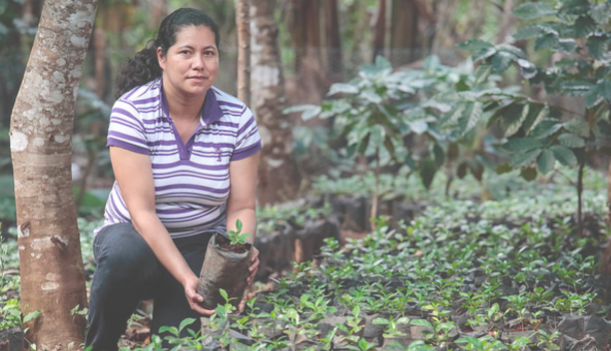No poverty, prosperity for all and a healthy planet by 2030: this is the promise of the Sustainable Development Goals (SDGs). Set in 2015 this quixotic set of 17 goals is deliberately more aspirational compared to the eight concrete Millennium Development Goals (MDGs) which underpinned the UN agenda on international development from 2001 to 2015. The MDGs alongside the optimism and momentum of the Make Poverty History Campaign, microfinance and the Fairtrade label defined much of the development work and discourse in the first 15 years of the twenty-first century. Progress was made, child mortality was cut in half and the percentage of people living in extreme poverty in developing countries dropped from 47 per cent in 1990 to 14 per cent in 2015 (UN, 2016). However, whilst purporting to have learnt from, and improve the development agenda since the MDGs, the SDGs are still plagued with problematic westerncentric assumptions.
The MDGs essentially targeted Sub-Saharan African countries and were often critiqued for providing a one-sided, top down transfer of assistance from the Global-North to the Global-South. Since the implementation of the MDGs International development discourse has become more aware of how it can be neo-colonialist, paternalistic and dismissive and this is reflected in the broader, more inclusive focus of the SDGs. For example, in addition to no poverty and zero hunger, the goals address reducing inequality, responsible consumption and production and climate action, issues that affect and originate from countries across both the Global-North and Global-South.

The naming of the goals under the ‘sustainable development’ banner reflects this at a normative level as well. Sustainable development evokes ideas of capacity building rather than dependency, self determination, environmentalism, and a long term, intergenerational outlook. Therefore the SDGs signal a shift at least in understanding, recognising that the Global-North has a responsibility, not only its aid and development work but also at a domestic level to address global issues of inequality, discrimination and environmentalism. Nonetheless with the expansion of globalisation the interrelationship and inter-causality of the issues that the SDGs address becomes even more important.
The MDGs were limited in scope to address very traditional areas of concern within the development and non-government sphere and provided little invitation to civil society, the private sector or public institutions to share in the responsibility or initiatives designed to tackle the issues. The SDGs however have deliberately emphasised the role of the private sector and state bodies. For the private sector this is fairly consistent with new focuses and projects on Corporate Social Responsibility (CSR) and its related counterparts.
It is appropriate that the private sector be included and recognised as potential key contributors to the realisation of the SDGs. This reflects the reality of our globalised world.
Further the SDGs engage a holistic approach that recognises how achieving health, education and a healthy environment relate to each other and how aiming for these things presupposes and can lead to, other development outcomes such as jobs, peace, justice and partnership. However, before this innovative and holistic approach is accepted on its face, the underlying causes and contributors that have prevented the realisation of these outcomes needs to be appreciated. At an oversimplification, hunger and preventable diseases continue to kill not because we do not know how to address them but because we prioritise industry, patents, profits and greed.
There remains an inherent hypocrisy and impossibility in expecting the private sector to help reduce inequality and promote responsible consumption and production. At the most basic level the goals operate within a capitalist mandate. A mandate which supposes that accumulation of wealth for personal gain is a primary good.
How are the companies that predicate their existence on this assumption and their survival on the basis that customers adopt the same practice, expected to redress global inequality?
At a panel discussion on implementing the SDGs in the business sector, hosted at Lund University on November 16 in conjunction with the Swedish Aid Department FUF and the Lund UN chapter, Mats Svensson, International Secretary at IF Metall discussed the landmark industrial trade union agreement achieved with H&M to ensure local enforceable workers rights and conditions. The work of IKEA, H&M and others should be applauded and their practices are deserving of recognition and are certainly a lot better than many competitors, however analysing their application points to the hypocrisy of the goals. If H&M have worked to achieve decent work conditions for the employees in their supply chain, it is partly at the cost of promoting responsible consumption and production.

The thousands of employees that now have ‘good jobs’ are able to do so because of the required mass production that fuels quick product turnover which directly opposes responsible consumption at an individual level. Also at this panel IKEA’s Global Communication Manager of Next Generation Social Entrepreneurs Ann-Sofie Gunnarsson talked about the innovative CSR work done by IKEA. For one project, IKEA invests in training entrepreneurial women in selected rural locations in developing countries to build handicraft businesses and then aims to sell these products in their stores. However good this might be, the impact of the best handicraft initiative is still dwarfed by what could be achieved if IKEA stopped dodging taxes. If the money they cleverly avoid paying in taxes went to the governments of the countries where these initiatives occur, the conditions, infrastructure and accountability needed to achieve ‘development’ for the people targeted in these projects would be allowed to occur at the local level. Yet, achieving tax justice is not addressed by most actors who are apparently on board with the SDGs. One estimate suggests that in 2008 developing countries lost more than USD $160b through two forms of multinational corporate tax dodging, those same countries collectively received USD $120b in aid the following year.
Whilst the inclusion of the private sector in the SDGs is appropriate, for it to have integrity, the private sector needs to realise and address their underlying practices which contribute to the global issues that the SDGs aim to address. If this does not happen, it remains easy to be cynical and consider the work done through CSR to simply be about positive branding.
The legacy of colonialism is once again seen to rear its head through the inclusion of the private sector in the SDGs, whilst western economies were allowed to develop and profit from their histories of exploitation and are only now expected to implement sustainable practice, initiatives and organisations in the Global-South are now subject to these checks from the outset. This is seen in the IKEA handicraft project which ensures that the rural, small-scale businesses they support, are mandated to remain just that, small-scale and rurally based. Thus, the women will now have some income, skills and experience but they are prevented for aiming for the larger profit margins and mass production that allows IKEA to be a globally successful company.
The reality of the world as one plagued with inequality, poverty and suffering cannot and should not be ignored. There will always be dispute and cause for critique about how these problems are being tackled. Nonetheless, the SDGs remain an important, normative and unified agenda for addressing these issues. The inclusion of the private sector allows for greater force and diversity in the approaches adopted to address the SDGs. It is unlikely the 17 goals and 169 subgoals will be achieved by 2030 but just as the SDGs changed to incorporate the lessons learnt from the progress made in the MDGs, so too success may be better measured not in what is achieved but by what is challenged and changed in the process.
Taminka Hanscamp







